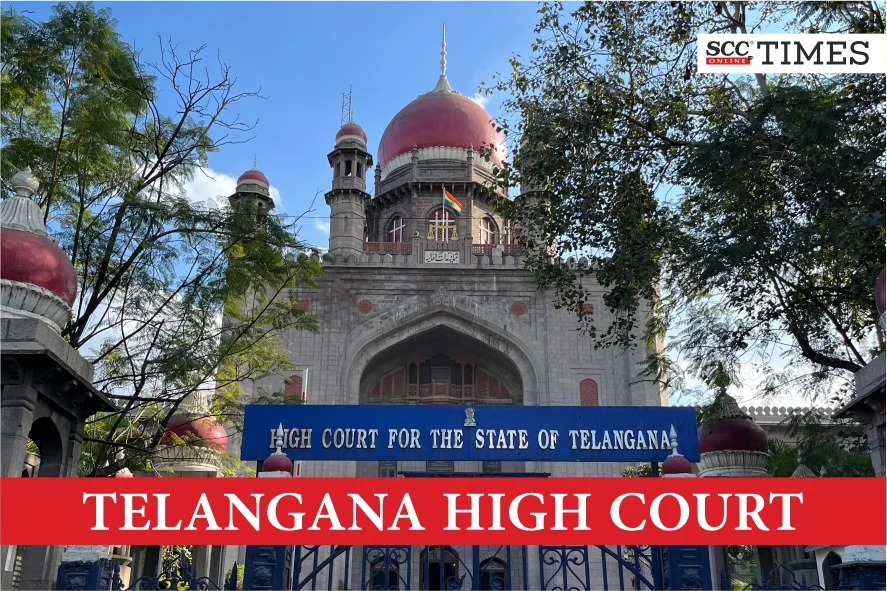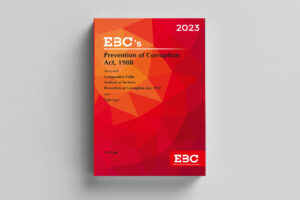Telangana High Court: In the present case, two criminal revision cases were preferred under Sections 397 and 401 of the Criminal Procedure Code, 1973 (‘CrPC’) by petitioner, CBI, being aggrieved by the common order dated 10-3-2010, wherein respondents were discharged from the offences under Section 13(2) read with Section 13(1)(d) of the Prevention of Corruption Act, 1988 (‘the PC Act’). E.V. Venugopal, J., held that respondents in the present case were public servants and they were liable for the charges prescribed under the provisions of the PC Act and their complicity or otherwise regarding the allegations levelled against them in the charge-sheet were to be decided by conducting full-fledged trial.
Background
A case was registered by petitioner against respondents under Sections 409, 420, 467, 468, 471 of Penal Code, 1860 (‘IPC’) and Section 13(2) read with Section 13(1)(d) of the PC Act alleging that respondents being the public servants in the capacity of Chairman and Managing Director and Executive Director of erstwhile Global Trust Bank, between the years 1994 and 2003, conspired with other accused, cheated the said bank in the matter of recommending/sanctioning/disbursing/availing huge credit facilities by dishonestly and fraudulently inducing the bank to part with its funds in the form of letter of credits and bills discounting facility with false and fabricated bills and also in the matter of recommending/ sanctioning/disbursing and availing the enhanced limit without adequate security, causing misutilization/diversion of funds and also pecuniary advantage to themselves and pecuniary loss to the bank since the said amounts became irrecoverable and in such process, the bank suffered the loss of Rs 10.25 crore.
The Special Judge for CBI Cases, Hyderabad (‘the Special Judge’), discharged respondents from the offences under Section 13(2) read with 13(1)(d) of the PC Act stating that they could not come under the definition of ‘public servants’ and the offences under the PC Act could not be levelled against them. Further the Special Judge directed the Investigating Officer to take back the charge sheet along with documents and statements to file the same before appropriate Court against respondents for relevant offences other than the offences under the PC Act.
Aggrieved by the Special Judge’s decision, petitioner filed the present criminal revision cases contending that respondents were public servants, especially under Sections 2(b) and 2(c)(viiii), Banking Regulation Act, 1949; and, under the provisions of the PC Act.
Analysis, Law, and Decision
The Court observed that the object of enactment of the PC Act was to make the anti-corruption law more effective and widen its coverage. The Court opined that in view of the definition of ‘public servant’ in Section 46-A of Banking Regulation Act, 1949; Section 21 of the IPC; and Section 2 of the PC Act, the Managing Director and Executive Director of a banking company operating under licence issued by the Reserve Bank of India, were already public servants, and they could not be excluded from the definition of ‘public servant’.
The Court relied on CBI v. Ramesh Gelli, (2016) 3 SCC 788 (‘Ramesh Gellli Case’), wherein the Supreme Court held that respondents herein were public servants, and they were liable to be prosecuted for the offences under the PC Act. The Court noted that respondents in the present case were parties to Ramesh Gelli Case (supra) and the core issue in Ramesh Gellli Case (supra) was “whether respondents are public servants or not”. Thus, the Court held that respondents in the present case were public servants, and they were liable for the charges prescribed under the provisions of the PC Act and their complicity or otherwise regarding the allegations levelled against them in the charge-sheet were to be decided by conducting a full-fledged trial.
The Court observed that Section 13 of the PC Act denoted that a public servant was said to commit the offence of criminal misconduct if he dishonestly or fraudulently misappropriates or otherwise converts for his own use any property entrusted to him or any property under his control as a public servant or allows any other person so to do or if he intentionally enriches himself illicitly during the period of his office, he is liable for penal prosecution under the PC Act.
The Court stated that the Special Judge failed to appreciate the facts and circumstances and held that respondents were not public servants and accordingly exonerated them from offences under the provisions of the PC Act. Thus, the Court allowed the criminal revision cases and opined that these two criminal revision cases were fit for merit consideration warranting interference of this Court by setting aside the impugned order of the Special Judge.
[CBI v. Ramesh Gelli, Criminal Revision Case 406 of 2011, Order dated 14-3-2024]
Advocates who appeared in this case :
For the Petitioner: Anandi, Special Public Prosecutor
For the Respondent: L. Ravi Chander, Senior Counsel; E. Umamaheshwar Rao, Counsel (on behalf of C. Sharan Reddy, Counsel)









